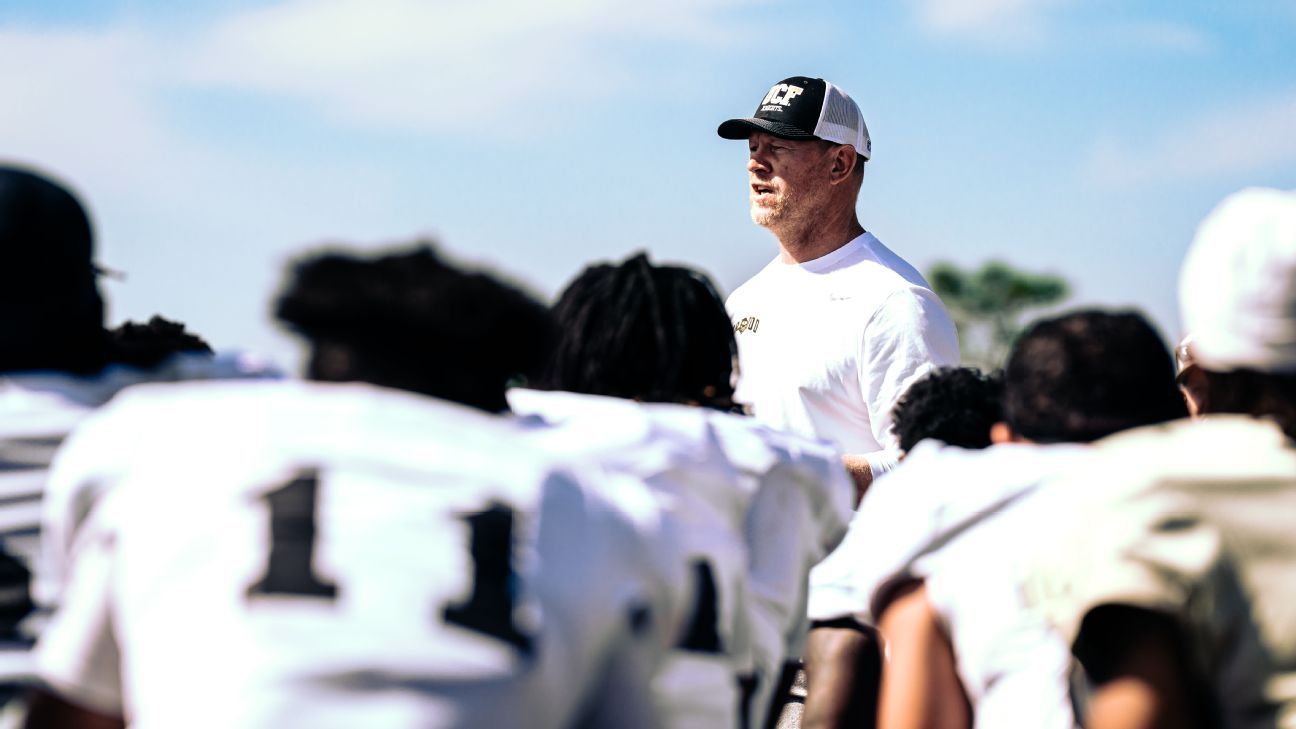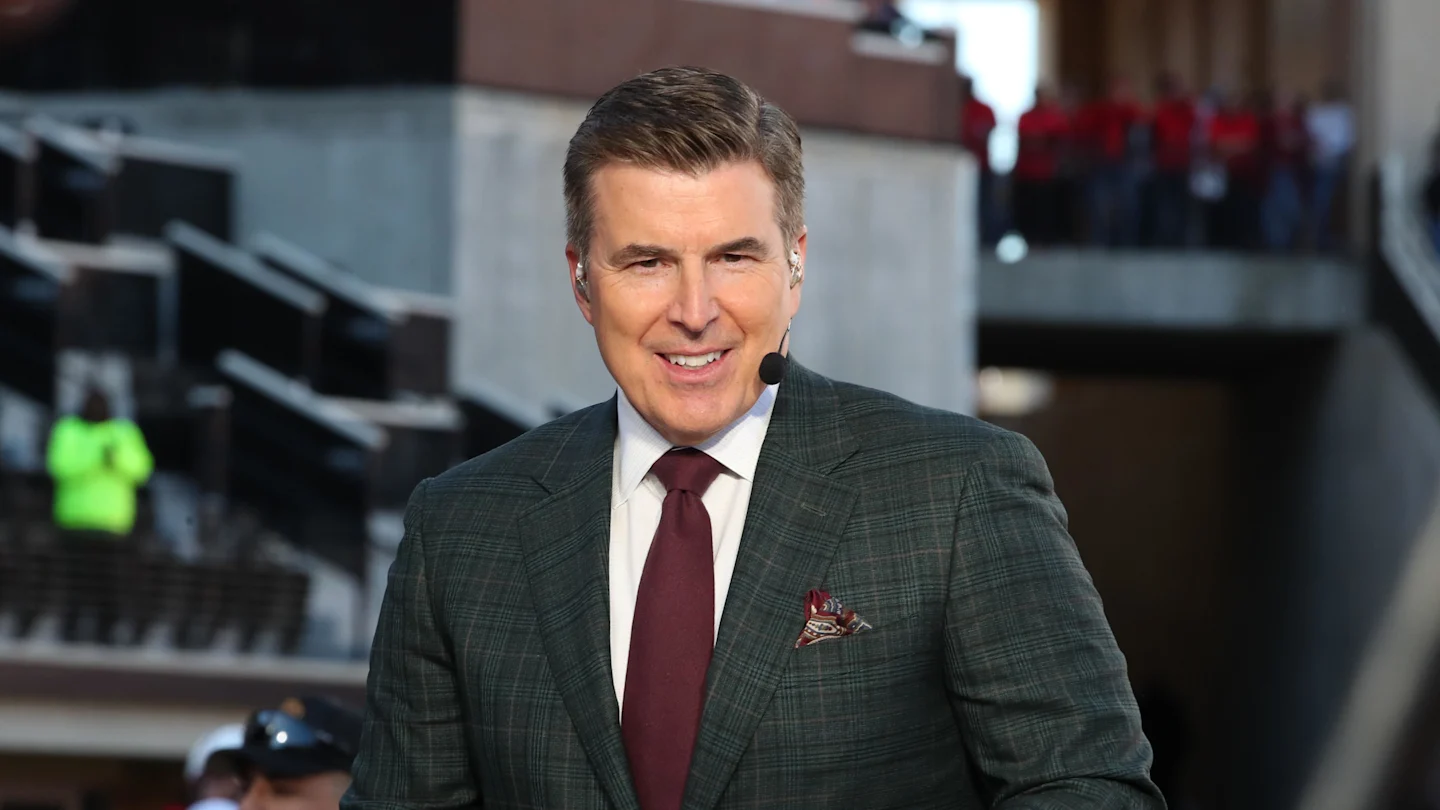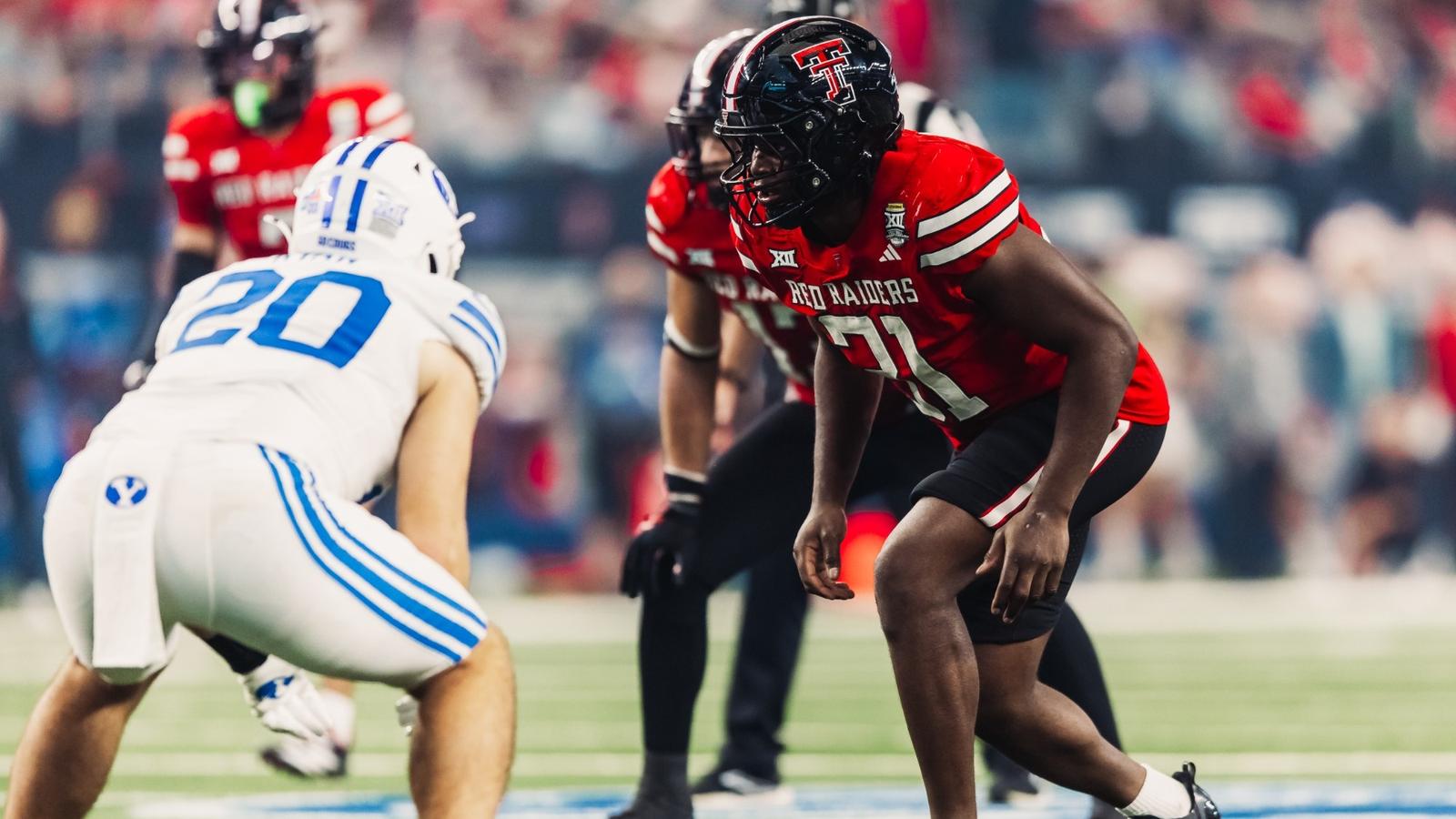NIL
This time at UCF, Scott Frost won’t need to catch lightning in a bottle

ORLANDO, Fla. — Scott Frost walks into the UCF football building and into his office, the one he used the last time he had this job, eight years ago. The shades are drawn, just like they used to be. There are drawings from his three kids tacked to the walls. There are still trophies sitting on a shelf.
He still parks in the same spot before he walks into that same building and sits at the same desk. The only thing that has changed is that the desk is positioned in a different part of the room.
But the man doing all the same things at the University of Central Florida is a different Scott Frost than the one who left following that undefeated 2017 season to take the head coach job at Nebraska.
UCF might look the same, but the school is different now, too. The Knights are now in a Power 4 conference, and there is now a 12-team College Football Playoff that affords them the opportunity to play for national championships — as opposed to self-declaring them. Just outside his office, construction is underway to upgrade the football stadium. The same, but different.
“I know I’m a wiser person and smarter football coach,” Frost said during a sit-down interview with ESPN. “When you’re young, you think you have it all figured out. I don’t think you really get better as a person unless you go through really good things, and really bad things. I just know I’m where I’m supposed to be.”
Out on the practice field, Frost feels the most at home — he feels comfort in going back to the place that has defined nearly every day of his life. As a young boy, he learned the game from his mom and dad, both football coaches, then thrived as a college and NFL player before going into coaching.
He coaches up his players with a straightforwardness that quarterbacks coach McKenzie Milton remembers fondly from their previous time together at UCF. Milton started at quarterback on the 2017 undefeated team, and the two remained close after Frost left.
“I see the same version of him from when I was here as a player,” Milton said. “Even though the dynamic in college football has changed dramatically with the portal and NIL, I think Coach Frost is one of the few coaches that can still bring a group of guys together and turn them into a team, just with who he is and what he’s done and what he’s been through in his life. He knows what it looks like to succeed, both as a coach and a player.”
Since his return, Frost has had to adjust to those changes to college football, but he said, “I love coming into work every day. We’ve got the right kids who love football. We’re working them hard. They want to be pushed. They want to be challenged. We get to practice with palm trees and sunshine and, we’re playing big-time football. But it’s also just not the constant stress meat grinder of some other places.”
Meat grinder of some other places.
Might he mean a place such as Nebraska?
“You can think what you want,” Frost said. “One thing I told myself — I’m never going to talk about that. It just doesn’t feel good to talk about. I’ll get asked 100 questions. This is about UCF. I just don’t have anything to say.”
Frost says he has no regrets about leaving UCF, even though he didn’t get the results he had hoped for at his alma mater. When Nebraska decided to part ways with coach Mike Riley in 2017, Frost seemed the best, most obvious candidate to replace him. He had been the starting quarterback on the 1997 team, the last Nebraska team to win a national title.
He now had the coaching résumé to match. Frost had done the unthinkable at UCF — taking a program that was winless the season before he arrived, to undefeated and the talk of the college football world just two years later.
But he could not ignore the pull of Nebraska and the opportunities that came along with power conference football.
“I was so happy here,” Frost said. “We went undefeated and didn’t get a chance to win a championship, at least on the field. You are always striving to reach higher goals. I had always told myself I wasn’t going to leave here unless there was a place that you can legitimately go and win a national championship. It was a tough decision because I didn’t want to leave regardless of which place it was.”
Indeed, Frost maintains he was always happy at UCF. But he also knew returning to Nebraska would make others happy, too.
“I think I kind of knew that wasn’t best for me,” he said. “It was what some other people wanted me to do to some degree.”
In four-plus seasons with the Cornhuskers, Frost went 16-31 — including 5-22 in one-score games. He was fired three games into the 2022 season after a home loss to Georgia Southern.
After Frost was fired, he moved to Scottsdale, Arizona, where his wife has family. He reflected on what happened during his tenure with the Cornhuskers but also about what he wanted to do with the rest of his career. He tried to stay connected to the game, coaching in the U.S. Army Bowl, a high school all-star game in Frisco, Texas, in December 2022. Milton coached alongside him, and distinctly remembers a conversation they had.
“He said, ‘It’s my goal to get back to UCF one day,'” Milton said. “At that time, I was like, ‘I pray to God that happens.'”
If that was the ultimate goal, Frost needed to figure out how to position himself to get back there. While he contemplated his future, he coached his son’s flag football team to a championship. Frost found the 5- and 6-year-olds he coached “listen better than 19-year-olds sometimes.”
Ultimately, he decided on a career reboot in the NFL. Frost had visited the Rams during their offseason program, and when a job came open in summer 2024, Rams coach Sean McVay immediately reached out.
Frost was hired as a senior analyst, primarily helping with special teams but also working with offense and defense.
“It was more just getting another great leader in the building, someone who has been a head coach, that has wisdom and a wealth of experience to be able to learn from,” McVay told ESPN. “His ability to be able to communicate to our players from a great coaching perspective, but also have the empathy and the understanding from when he played — all of those things were really valuable.”
McVay said he and Frost had long discussions about handling the challenges that come with falling short as a head coach.
“There’s strength in the vulnerability,” McVay said. “I felt that from him. There’s a real power in the perspective that you have from those different experiences. If you can really look at some of the things that maybe didn’t go down the way you wanted to within the framework of your role and responsibility, real growth can occur. I saw that in him.”
Frost says his time with the Rams rejuvenated him.
“It brought me back,” Frost said. “Sometimes when you’re a head coach or maybe even a coordinator, you forget how fun it is to be around the game when it’s not all on you all the time. What I did was a very small part, and we certainly weren’t going to win or lose based on every move that I made, and I didn’t have to wear the losses and struggle for the victories like you do when you’re a head coach. I’m so grateful to those guys.”
UCF athletics director Terry Mohajir got a call from then-head coach Gus Malzahn last November. Malzahn, on the verge of finishing his fourth season at UCF, was contemplating becoming offensive coordinator at Florida State. Given all the responsibilities on his desk as head coach — from NIL to the transfer portal to roster management — he found the idea of going back to playcalling appealing. Mohajir started preparing a list of candidates and was told Thanksgiving night that Malzahn had planned to step down.
Though Frost previously worked at UCF under athletics director Danny White, he and Mohajir had a preexisting relationship. Mohajir said he reached out to Frost after he was fired at Nebraska to gauge his interest in returning to UCF as offensive coordinator under Malzahn. But Frost was not ready.
This time around, Mohajir learned quickly that Frost had interest in returning as head coach. Mohajir called McVay and Rams general manager Les Snead. They told him Frost did anything that was asked of him, including making copies around the office.
“They said, ‘You would never know he was the head coach at a major college program.” Mohajir also called former Nebraska athletic director Trev Alberts to get a better understanding about what happened with the Cornhuskers.
“Fits are a huge piece, and not everybody fits,” Mohajir said.
After eight conversations, Mohajir decided he wanted to meet Frost in person. They met at an airport hotel in Dallas.
“He was motivated,” Mohajir said. “We went from coast to coast, talked to coordinators, head coaches, pro guys, all kinds of different folks. And at the end of the day, I really believe that Scott wanted the job the most.”
The first day back in Orlando, Dec. 8, was a blur. Frost woke up at 3:45 a.m. in California to be able to make it to Florida in time for his introductory news conference with his family.
When they pulled into the campus, his first time back since he left in 2017, Frost said he was in a fog. It took another 24 hours for him and his wife, Ashley, to take a deep exhale.
“Rather than bouncing around chasing NFL jobs, we thought maybe we would be able to plant some roots here and have our kids be in a stable place for a while at a place that I really enjoyed coaching and that I think it has a chance to evolve into a place that could win a lot of football games,” Frost said. “All that together was just enough to get me to come back.”
The natural question now is whether Frost can do what he did during his first tenure.
That 2017 season stands as the only winning season of his head coaching career, but it carries so much weight with UCF fans because of its significance as both the best season in school history, and one that changed both its own future and college football.
After UCF finished 13-0, White self-declared the Knights national champions. Locked out of the four-team playoff after finishing No. 12 in the final CFP standings, White started lobbying for more attention to be paid to schools outside the power conferences.
That season also positioned UCF to pounce during the next wave of realignment. Sure enough, in 2023, the Knights began play in a Power 4 conference for the first time as Big 12 members. This past season, the CFP expanded to 12 teams. Unlike 2017, UCF now has a defined path to play for a national title and no longer has to go undefeated and then pray for a shot. Win the Big 12 championship, no matter the record, and UCF is in the playoff.
But Frost cautions those who expect the clock to turn back to 2017.
“I don’t think there’s many people out there that silly,” Frost said. “People joke about that with me, that they’re going to expect you go into undefeated in the first year. I think the fans are a little more realistic than that.”
The game, of course, is different. Had the transfer portal and NIL existed when Frost was at UCF during his first tenure, he might not have been able to keep the 2017 team together. The 2018 team, which went undefeated under Josh Heupel before losing to LSU in the Fiesta Bowl, might not have stayed together, either.
This upcoming season, UCF will receive a full share of television revenue from the Big 12, after receiving a half share (estimated $18 million) in each of his first two seasons. While that is more than what it received in the AAC, it is less than what other Big 12 schools received, making it harder to compete immediately. It also struggled with NIL funding. As a result, in its first two years in the conference, UCF went 5-13 in Big 12 play and 10-15 overall.
Assuming the House v. NCAA settlement goes into effect this summer, Mohajir says UCF is aiming to spend the full $20.5 million, including fully funding football.
“It’s like we moved to the fancy neighborhood, and we got a job that’s going to pay us money over time, and we’re going to do well over time, but we’re stretching a little to be there right now, and that requires a lot of effort from a lot of people and a lot of commitment from a lot of people,” Frost said. “So far, the help that we’ve gotten has been impressive.”
Mohajir points out that UCF has had five coaching changes over the past 10 years, dating back to the final season under George O’Leary in 2015, when the Knights went 0-12. Frost says he wants to be in for the long term, and Mohajir hopes consistency at head coach will be an added benefit. Mohajir believes UCF is getting the best of Frost in this moment and scoffs at any questions about whether rehiring him will work again.
“Based on what I’m seeing right now, it will absolutely work,” Mohajir said. “But I don’t really look at it as ‘working again.’ It’s not ‘again.’ It’s, ‘Will it work?’ Because it’s a different era.”
To that end, Frost says success is not recreating 2017 and going undefeated. Rather, Frost said, “If our group now can help us become competitive in the Big 12, and then, from time to time, compete for championships and make us more relevant nationally, I think we’ll have done our job to help catapult UCF again.”
You could say he is looking for the same result. He’s just taking a different route there.
NIL
Rece Davis names former Pac-12 coach who should be top candidate for Michigan head coaching job

Almost every list of potential head coach candidates for Michigan has had some combination of the same names, like Kalen DeBoer, John Harbaugh, Jesse Minter, Kenny Dillingham, etc.
But ESPN’s Rece Davis had an interesting suggestion that hasn’t been mentioned much at all since the stunning development that led to Michigan firing head coach Sherrone Moore on Wednesday for having an inappropriate relationship with a staff member, and Moore was arrested and charged with stalking and home invasion.
Davis, the host of “College GameDay” and a prominent voice on college football matters, suggested that former Stanford coach David Shaw should not only be on Michigan’s list of candidates but “given the circumstances, likely atop the list,” he posted on social media.
If I were in Warde Manuel and Michigan’s position, I’d have David Shaw very high on my list. Given the circumstances, likely atop the list.
— Rece Davis (@ReceDavis) December 12, 2025
Shaw is in his first season as the Detroit Lions’ passing game coordinator and has not coached in college football since he resigned as Stanford’s head coach at the end of the 2022 season.
Shaw was 96-54 in 12 seasons at Stanford, including five seasons with double-digit wins. His 2015 Cardinal team went 12-2, won the Rose Bowl and finished No. 3 in the final AP top 25 poll. His 2011 and 2012 teams both finished No. 7 in the AP rankings, going 11-2 and 12-2, respectively.
Shaw’s Stanford tenure had two very distinct chapters, though. Through his first eight seasons, he was 82-26, winning at least eight games in every season, collecting three Pac-12 championships, four Pac-12 Coach of the Year awards and the Bobby Dodd national coach of the year award in 2017. Over his final four years, he went 14-28 with three losing seasons.
Shaw’s style would fit seamlessly at Michigan, as his best Stanford teams were known for dominant, physical rushing attacks.

Davis’ suggestion that Shaw should be atop Michigan’s list was beyond just his coaching resume, though.
The Wolverines program is in turmoil with one black eye after another now, from the NCAA investigation into and substantial penalties from the Connor Stalions sign-stealing scandal and now the ugly ending to Moore’s two-year tenure as head coach.
Shaw has his own connections to former Michigan coach Jim Harbaugh, serving as Harbaugh’s offensive coordinator at Stanford before succeeding him as head coach there, but he has a pristine reputation and record free of scandal and was among the most respected coaches in college football during his time with the Cardinal.
It’s not a crazy idea, though Michigan fans will surely prefer a splashier hire and a coach who has excelled in this new NIL/transfer portal era of college football.
NIL
Cignetti, Mendoza, Smith, Ponds earn awards, recognition during ESPN’s college football awards show – The Daily Hoosier

Indiana head football coach Curt Cignetti and quarterback Fernando Mendoza each earned accolades during ESPN’s 35th annual The Home Depot College Football Awards, while a trio of Hoosiers were selected for All-America honors during the telecast.
Cignetti earns his second national coach of the year award this season in the form of the Home Depot Coach of the Year honor. He previously won the Walter Camp National Coach of the Year award. He earned each award in back-to-back seasons. He the first coach to win the Home Depot Coach of the Year award in back-to-back seasons.
Mendoza was named winner of the Davey O’Brien Award and Maxwell Award to go along with his Walter Camp Award earlier in the week. He then joined teammates Carter Smith (OL, First Team) and D’Angelo Ponds (DB, Second Team) on the Walter Camp Football Foundation All-America Team.
Cignetti helped the Hoosiers to its first unblemished regular season in program history, a program-record 13 wins through its first Big Ten Championship Game victory and the No. 1 seed in the upcoming College Football Playoff. On Wednesday, he became the first coach to win consecutive Walter Camp National Coach of the Year honors in the awards 59-year history.
Mendoza is the second Hoosier to win the prestigious Maxwell Award, joining running back Anthony Thompson in 1989. He is the first Big Ten student-athlete to win the award since Penn State running back Larry Johnson in 2002 and the first Big Ten quarterback to win the award since Drew Brees in 2000.
Mendoza currently leads the nation in passing touchdowns (33) and is the Power 4 leader in touchdowns responsible for (39). He is the third Big Ten quarterback since 2000 with three-straight games of at least four passing touchdowns and zero interceptions – C.J. Stroud (Ohio State; 2021) and Kyle Orton (Purdue; 2004, four straight). The Miami, Florida, native is the only FBS quarterback since at least 1996 with multiple games of at least 90 percent completion and four touchdown passes versus Power 4 opponents.
In 2025, Mendoza is the lone FBS quarterback with five games of 4-plus touchdown passes and zero interceptions and entered Championship Week as the FBS leader in percentage of passes that result in a touchdown at 10.9%, over one point higher than the next closest passer (Sayin, Ohio State; 9.2%).
He has thrown a touchdown pass in 12-straight games entering the College Football Playoff and has five games with both a passing and rushing touchdown in 2025. He has thrown 33 touchdowns to just six interceptions, is tied for No. 2 on the team with six rushing touchdowns and has 240 yards rushing on the season.
The Hoosiers earned the No. 1 spot in the College Football Playoff and will play the winner of Alabama/Oklahoma in the Rose Bowl Game on Jan. 1, 2026. The game from Rose Bowl Stadium will kick at 4 p.m. ET
Related
NIL
Trump ‘willing to put the federal government behind’ changes to NIL

On the cusp of the 45th anniversary of their defeat of the Soviet Union in the 1980 Lake Placid Winter Olympics, the United States’ “Miracle on Ice” Olympic men’s hockey team was honored at the White House on Friday, Dec. 12 with Congressional Gold Medals.
It led into a brief discussion on the current state of Name, Image and Likeness (NIL) in college sports when Team USA captain Mike Eruzione was asked about the topic by a reporter. Following a brief response from Eruzione, President Donald Trump joined the conversation and made a statement.
Advertisement
“Something ought to be done, and I’m willing to put the federal government behind it,” Trump said of overhauling NIL in college sports during a bill signing ceremony in the Oval Office. “And if it’s not done fast, you’re going to wipe out colleges.”
REQUIRED READING: ‘Miracle on Ice’ team honored with Congressional Gold Medals by President Trump
This is not the first time that Trump has spoken on the state of college athletics in a time where NIL and the transfer portal have taken over. He made similar remarks on “The Pat McAfee Show” during a phone call interview on Veterans Day.
Republicans in the U.S. House of Representatives recently pulled the scheduled final vote for the Republican-backed SCORE Act that would have allowed the NCAA and its recently formed College Sports Commission to create and enforce national rules that have been under legal dispute in recent years.
Advertisement
The SCORE Act (Student Compensation And Opportunity Through Rights and Endorsements) had sought to provide more regulation and calm the chaotic environment created by the introduction of NIL compensation, revenue sharing and the transfer portal to college sports.
The USA TODAY app gets you to the heart of the news — fast. Download for award-winning coverage, crosswords, audio storytelling, the eNewspaper and more.
This article originally appeared on USA TODAY: Trump says ‘something ought to be done’ about NIL in college sports
NIL
Here’s what Trump has to say about NIL in college sports

President Donald Trump isn’t a big fan of college athletes being paid for the use of their name, image and likeness.
In fact, he trashed NIL in response to a question about it Friday.
During a ceremony at the White House to honor the gold-medal winning 1980 U.S. Olympic hockey team, a reporter asked about NIL deals and the transfer portal, noting the “Miracle on Ice” players were amateurs who didn’t get paid.
Advertisement
Team captain Mike Eruzione said he didn’t like it, but that’s the state of college sports today and “we have no control over that.”
Trump, though, said maybe there is something to do about it.
“I think the NIL is a disaster for sports. It’s horrible for the Olympics, and I think it’s actually horrible for the players,” he said.
Trump said colleges are cutting “lesser” sports, those that don’t bring in revenue but help train athletes for the Olympics.
“Those sports don’t exist because they’re putting all their money into football, and by the way, they’re putting too much money into football,” Trump said.
As NIL and now revenue sharing has entered college sports, many schools across the country are having to make tough decisions about whether to maintain Olympic or nonrevenue sports.
Advertisement
The House v. NCAA settlement allows universities to pay their athletes up to $20.5 million per year, which works out to about 22% of the average athletic department revenue at Power Four schools. The vast majority of the money goes to football and men’s basketball players, the two most revenue-generating sports at most universities.
“You can’t pay a quarterback $14 million to come out of high school. They don’t even know if he’s going to be a very good player,” Trump said. “Colleges cannot afford to pay the kind of salaries you’re hearing out there.”
The highest reported NIL payments for football players have been in the $6 million to $8 million range. But Trump said schools won’t be able to stop paying more and more to get the player they believe will win them a national championship.
“You’re going to have these colleges wipe themselves out. And something ought to be done and I’m willing to put the federal government behind it. But if it’s not done fast, you’re going to wipe out colleges. They’re going to get wiped out, including ones that do well in football,” Trump said.
Advertisement
The president didn’t specify what he thinks the federal government should do. Several bills regulating NIL have been filed in Congress, but none have gained traction.
“Colleges cannot afford to play this game, and it’s a very bad thing that’s happening,” he said.

President Donald Trump answers media questions after a bill signing ceremony with members of the 1980 U.S. Men’s Olympic Hockey team, Friday, Dec. 12, 2025, in the Oval Office of the White House in Washington. | Jacquelyn Martin, Associated Press
Private equity enters college sports
Trump comments come as the University of Utah became the first school in the country to announce a deal with a private equity firm to infuse cash into its athletics program.
University administrators said the program has operated efficiently and generated a modest surplus over the years with the support of donors and student fees. But the decision to share revenues with athletes under the House settlement and the emergence of the transfer portal have added significant costs to the school.
Advertisement
The cost of supporting a nationally competitive athletics program has risen dramatically and far outpaces revenue growth, they said.
Utah intends to create a for-profit company called Utah Brands & Entertainment through its university foundation. It will partner with Otro Capital to run the commercial side of its sports program.
NIL
Bailey, Rodriguez garner Walter Camp All-America honors

LUBBOCK, Texas – Texas Tech senior outside linebacker David Bailey and senior linebacker Jacob Rodriguez were both named first team All-Americans by the Walter Camp Foundation on Friday evening during the Home Depot College Football Awards Show on ESPN.
This is the first career All-America honor for both Bailey and Rodriguez, who became only the third set of Red Raider teammates to collect first team All-America honors in school history. Texas Tech had both linebacker Zach Thomas and defensive back Marcus Coleman represented on an NCAA-recognized All-America team in 1995, while the quartet of wide receiver Michael Crabtree, quarterback Graham Harrell and offensive linemen Rylan Reed and Brandon Carter were all recognized in 2008.
The Walter Camp All-America teams kick off the list of NCAA-recognized organizations that determine the NCAA’s annual consensus and unanimous All-America teams. The Associated Press All-America team will be unveiled Monday followed by the American Football Coaches Association (AFCA) on Tuesday, the Sporting News on Wednesday and the Football Writers Association of America (FWAA) on Thursday.
Now in its 136th year as the nation’s oldest All-America team, the Walter Camp Foundation had not previously recognized a Red Raider since tight end Jace Amaro was a unanimous selection to the first team in 2013. Rodriguez joins Thomas (1994-95) and Thomas Howard (1976) as the only linebackers in program history to receive first team All-America honors. Bailey, meanwhile, became the third Red Raider defensive end or outside linebacker to be recognized on the first team, joining two other greats in Montae Reagor (1998) and Tyree Wilson (2022).
The All-America honor only adds to a memorable week for Rodriguez, who was also named the winner of the Bednark Award Friday evening during the ESPN broadcast. Rodriguez has collected the Butkus Award (nation’s top linebacker), the Bronko Nagurski Trophy (nation’s top defensive player), the Lombardi Award (nation’s top lineman or linebacker) and the Pony Express Award (nation’s top duo with Bailey) in the past week alone.
Rodriguez has been the most-disruptive player in college football this season as he enters the College Football Playoff Quarterfinal at the Capital One Orange Bowl as the FBS leader with seven forced fumbles and ranks among the top-15 players nationally with 117 tackles. He is the first FBS player since 2005 to record at least five forced fumbles, two fumble recoveries and four interceptions all in the same season.
His impact has bolstered a Texas Tech defense that leads the nation with 31 takeaways and ranks third nationally in scoring defense at 10.9 points per game. Rodriguez was responsible for nine takeaways himself — all in Big 12 play – thanks to his ability to punch the ball out and also read the quarterback in coverage. Rodriguez is currently the highest-rated player in all of college football, according to Pro Football Focus, grading out at 93.3 overall so far this season.
Bailey, meanwhile, leads possibly the best defensive line in college football this season with 13.5 sacks, which leads all power conference players and ranks second overall nationally entering bowl season. Bailey, who is also third in the FBS with 17.5 tackles for loss, is in the midst of his most-productive collegiate season after arriving from Stanford this offseason with 14.5 sacks for his career at the time, one more than his total this season under head coach Joey McGuire and outside linebackers coach C.J. Ah You. He is 1.5 sacks shy of the Texas Tech single-season sacks record of 15.0 that was set by Brandon Sharpe in 2009.
Pro Football Focus has credited Bailey with 74 pressures this season, easily the most in college football as Adam Trick of Miami (Ohio) ranks second with 66. Louisville’s Clev Lubin is the next-closest power conference player to Bailey with 61 pressures of his own. Bailey’s ability to get to the quarterback has also caused three forced fumbles, a pass breakup and a fumble recovery.
As a team, Texas Tech is the only team in the country to rank in the top five nationally for not only scoring defense and total defense but also total offense and total offense. The result has pushed Texas Tech to its first Big 12 Conference title and a 12-1 record, marking the most wins in a season in school history.
The Red Raiders await the winner of the College Football Playoff opening round game between No. 5 Oregon and No. 12 seed James Madision in the Capital One Orange Bowl. Kickoff on New Year’s Day is set for 11 a.m. CT with coverage provided on ESPN and the Texas Tech Sports Network.
NIL
Georgia football’s Dontrell Glover, Bo Walker arrested for shoplifting
Updated Dec. 12, 2025, 9:24 p.m. ET
Two Georgia football players were arrested Friday and charged with misdemeanor theft by shoplifting.
Starting offensive guard Dontrell Glover and running back Bo Walker were booked into the Clarke County Jail after 5:30 p.m. and released before 8 p.m, according to the jail’s online booking report. The arresting agency is the Athens-Clarke County Police.
-

 Rec Sports3 weeks ago
Rec Sports3 weeks agoFirst Tee Winter Registration is open
-

 Rec Sports2 weeks ago
Rec Sports2 weeks agoFargo girl, 13, dies after collapsing during school basketball game – Grand Forks Herald
-

 Motorsports3 weeks ago
Motorsports3 weeks agoCPG Brands Like Allegra Are Betting on F1 for the First Time
-

 Motorsports3 weeks ago
Motorsports3 weeks agoF1 Las Vegas: Verstappen win, Norris and Piastri DQ tighten 2025 title fight
-

 Sports3 weeks ago
Sports3 weeks agoTwo Pro Volleyball Leagues Serve Up Plans for Minnesota Teams
-

 Sports3 weeks ago
Sports3 weeks agoSycamores unveil 2026 track and field schedule
-

 Sports3 weeks ago
Sports3 weeks agoUtah State Announces 2025-26 Indoor Track & Field Schedule
-

 Motorsports2 weeks ago
Motorsports2 weeks agoJo Shimoda Undergoes Back Surgery
-

 Motorsports2 weeks ago
Motorsports2 weeks agoRedemption Means First Pro Stock World Championship for Dallas Glenn
-

 Rec Sports2 weeks ago
Rec Sports2 weeks agoRobert “Bobby” Lewis Hardin, 56

























